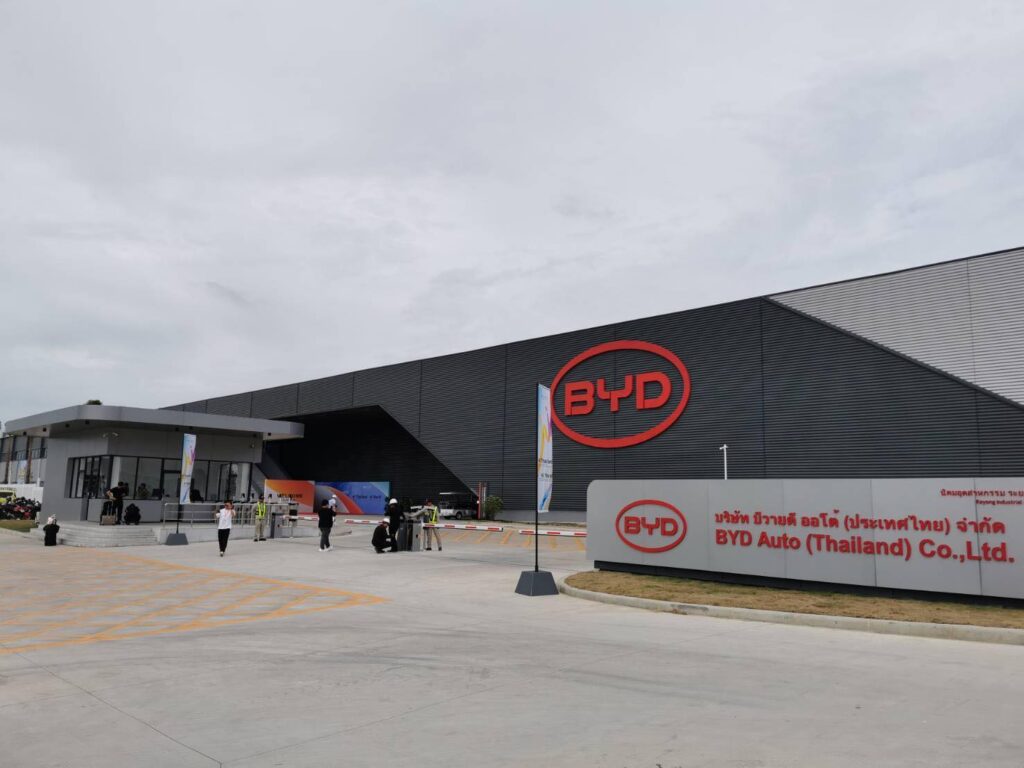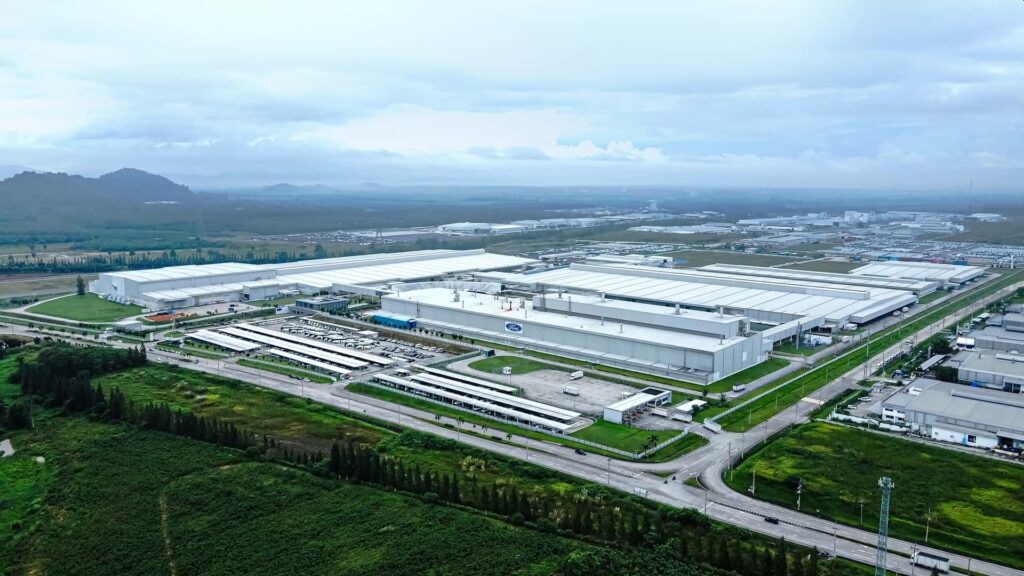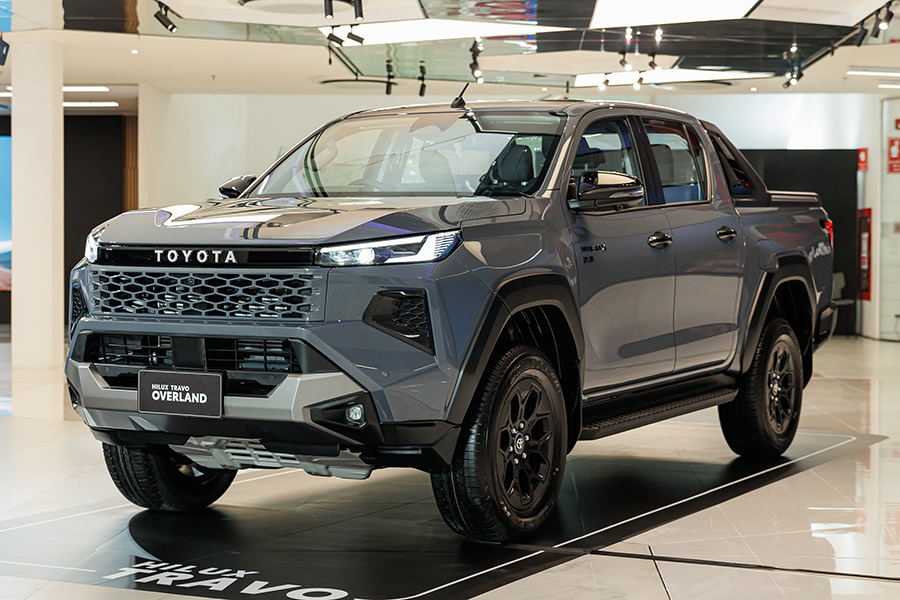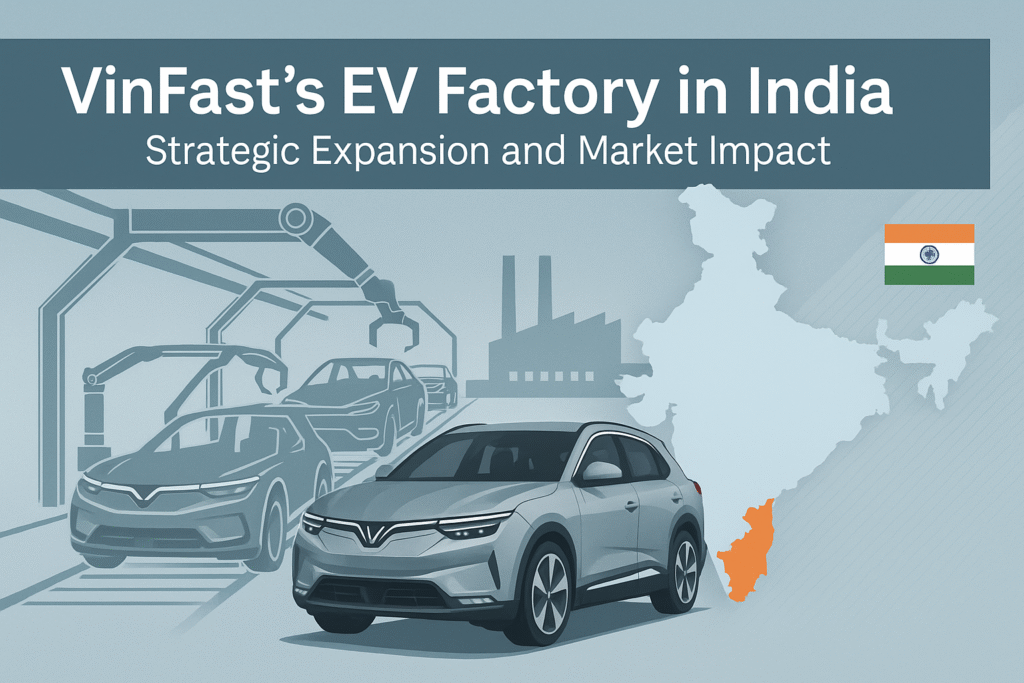BYD officially opened its first electric vehicle (EV) manufacturing plant outside of China in Rayong, Thailand on July 4, 2024. This facility represents a significant investment of over 35 billion baht and has a production capacity of 150,000 vehicles per year. The Rayong plant will produce several BYD models, including the Dolphin, Atto 3, Seal, and Sealion 6. It also has the capability to manufacture key components such as batteries and power transmission systems. The factory covers an area of over 948,000 square meters and includes four production stages: forging, welding, painting, and assembly.
BYD’s investment in Thailand is part of a broader strategy to use the country as a manufacturing hub for exporting right-hand drive vehicles to various ASEAN countries. The plant’s opening aligns with Thailand’s goal to convert 30% of its annual vehicle production to EVs by 2030, supported by government subsidies and tax incentives aimed at promoting the EV industry.

The BYD Rayong plant makes several significant contributions to Thailand’s EV market
-
Production Capacity
The plant has an annual production capacity of 150,000 vehicles, which substantially boosts Thailand’s EV manufacturing capabilities. This aligns with Thailand’s goal to convert 30% of its annual vehicle production to EVs by 2030.
-
Investment
BYD has invested over 35 billion baht (approximately $490 million) in the Rayong plant, representing a significant foreign investment in Thailand’s EV industry.
-
Model Range
The factory will produce various BYD models, including the Dolphin, Atto 3, Seal, and Sealion 6, diversifying the EV options available in the Thai market.
-
Component Manufacturing
The plant can produce key components such as batteries and power transmission systems, strengthening Thailand’s EV supply chain.
-
Export Hub
BYD plans to use the Rayong plant as a production base for right-hand drive vehicles for export to various ASEAN countries, positioning Thailand as a regional EV manufacturing hub.
-
Employment
The factory employs around 10,000 workers, contributing to job creation in Thailand’s automotive sector.
-
Market Leadership
BYD has quickly become the top-selling EV brand in Thailand, commanding a 46% share of the country’s EV market in Q1 2024. The local production is likely to further strengthen this position.
-
Technology Transfer
BYD’s CEO Wang Chuan Fu stated that they will “bring technology from China to Thailand”, potentially facilitating knowledge and technology transfer in EV manufacturing.
-
Supporting Government Initiatives
The plant’s establishment aligns with and supports Thailand’s EV policies, including the “30@30” initiative aimed at boosting EV manufacturing capacity.
-
Attracting Further Investment
BYD’s investment may encourage other EV manufacturers and suppliers to consider Thailand as a production base, potentially leading to more investments in the sector.
By contributing to production capacity, investment, employment, and export potential, the BYD Rayong plant plays a crucial role in advancing Thailand’s ambitions to become a leading EV manufacturing hub in Southeast Asia.


